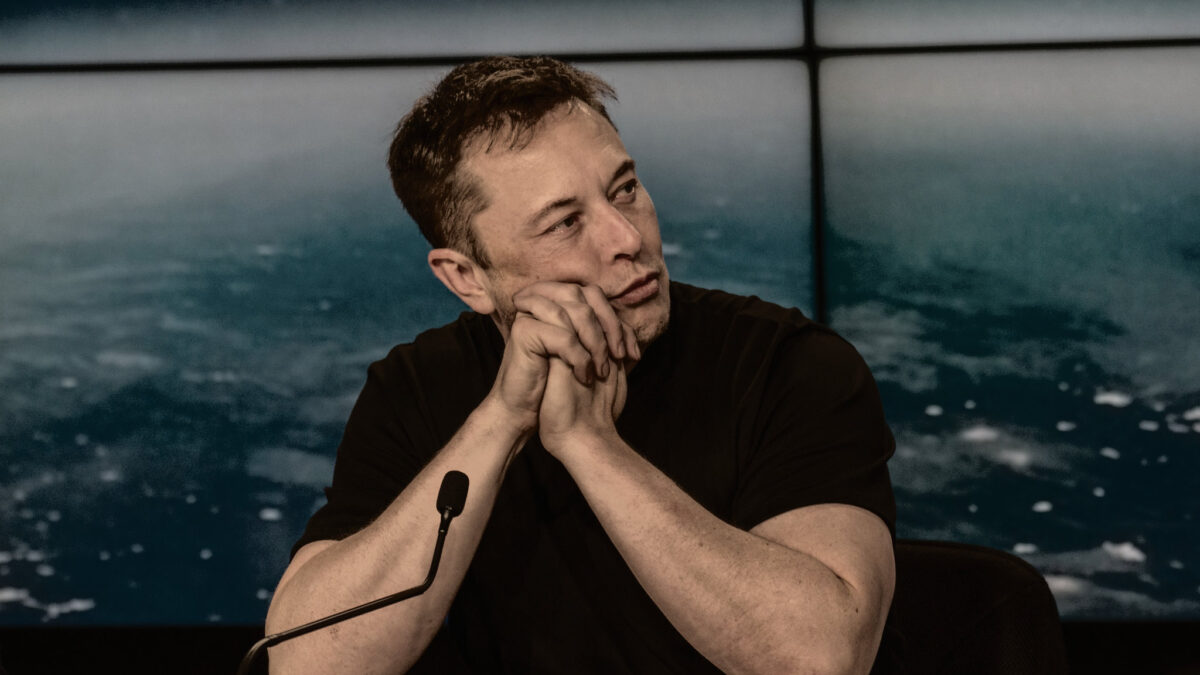Last week, Elon Musk took to Twitter to allege that a “stalker” had blocked the car carrying Musk’s 2-year-old son and climbed onto its hood. His post suggested that an app providing real-time data on private airplane flights facilitated the attack.
Like any dad, Musk was angered and outraged, but unlike any other dad, Musk could take immediate action. He announced a new Twitter rule that prohibits “doxxing” of individuals’ real-time locations as a public safety violation and temporarily suspended several journalists, including some from The Washington Post and CNN, for violating the policy.
As if coordinated by a dramatic script — enter Outrage downstage center — journalists, tech commentators, and even human rights activists denounced Musk for First Amendment hypocrisy. But it is the journalists’ hypocrisy that truly staggers. Those same reporters who denounce Musk said nothing (and continue to say nothing) about Twitter’s prior management banning Alex Berenson’s reporting of true facts about Covid, its suppression of the New York Post and the Hunter Biden laptop story, or perhaps the greatest First Amendment travesty of our time: collusion between the FBI and Big Tech platforms to control American political debate during the 2020 election. One could fairly respond to all this outrage as Marc Andreessen did: “A warm welcome to all the newest converts to the great American cause of free speech.”
This result does not surprise conservatives who know that corporate media journalists and fellow institutional apparatchiks follow power, not principle. But, what of Musk’s principle? Is he a hypocrite? From a free speech perspective, Musk’s actions are defensible. Platforms have long banned types of content such as nudity, grotesque gore — and speech that puts people in immediate harm. Real-time location doxxing is of a piece. If you’re OK with Facebook eliminating nudity, real-time doxxing likely has equally bad effects.
Further, laws aimed to end Big Tech censorship would allow Musk’s new rules. For instance, the recently upheld Texas social media law, H.B. 20, only prohibits viewpoint discrimination. The law follows Supreme Court precedent that distinguishes between viewpoint discrimination, which censors on the basis of beliefs or positions on various matters, and discrimination which prohibits categories of speech. To illustrate, the Texas law allows Facebook to ban nudity, but not advocates of naturism. Musk’s rule is viewpoint-neutral, prohibiting a type of speech: real-time doxxing. All may criticize the rule for any reason.
But, what about the First Amendment? If Twitter were the government, would Musk’s rule pass constitutional muster? It might. Given that the government can punish publication of sorts of private data — ranging from intimate photographs under “revenge porn” laws to educational records to medical records and classified documents — a law prohibiting publication of real-time data might be constitutional. Similarly, courts have held that firms are under no obligation to deal with competitors — and thus Elon’s recent, perhaps ill-advised, banning of links to competitor social media companies is constitutionally defensible too. In any case, Elon is not spitting on the First Amendment.
But, the regime journalists’ reactions to Musk’s restriction do spit on America. The same journalists acting as if the world has ended because one of theirs had his account suspended, turn a completely blind eye to the recent revelations in the “Twitter Files” concerning the FBI and other government entities outsourcing government censorship. As we now know, FBI lawyer Jim Baker was de facto embedded at Twitter. Combine those findings with documents showing how the FBI and DHS colluded with the platforms to pervert elections, punish dissenters on Covid policy, and silence conservative voices — where’s the outrage?
Finally, Musk’s rule — no doxxing of actual location — is a rule that can function fairly. Clear, viewpoint-neutral prohibitions can bring decorum to public discussion. For instance, the FCC’s prohibitions against nudity and profanity on broadcast have worked for decades, and continue to do so.
Compare Musk’s rules to how Twitter’s former censors banned former President Donald Trump. Revelations in the “Twitter Files” show Twitter employees admitting that Trump’s tweets did not violate their policies, but banning him anyway to get the result their ideology demanded. That’s how the platforms have worked for years: vague guidelines allow them to blow with the wind, whether the wind is blowing from their own staff’s ideological fever swamps or the FBI.
It’s early times for Musk. But so far his intuitions seem consistent with how our institutions should work. They can’t precisely mimic the First Amendment (after all, governments and private entities face different liability risks). But, they should support free speech through transparency and viewpoint neutrality. Musk has opened the “Twitter Files” so Americans can see the company’s past censorship for themselves — and his rules so far are viewpoint-neutral. Anyone who cares about free speech must see this as a quantum leap forward in platform management.









